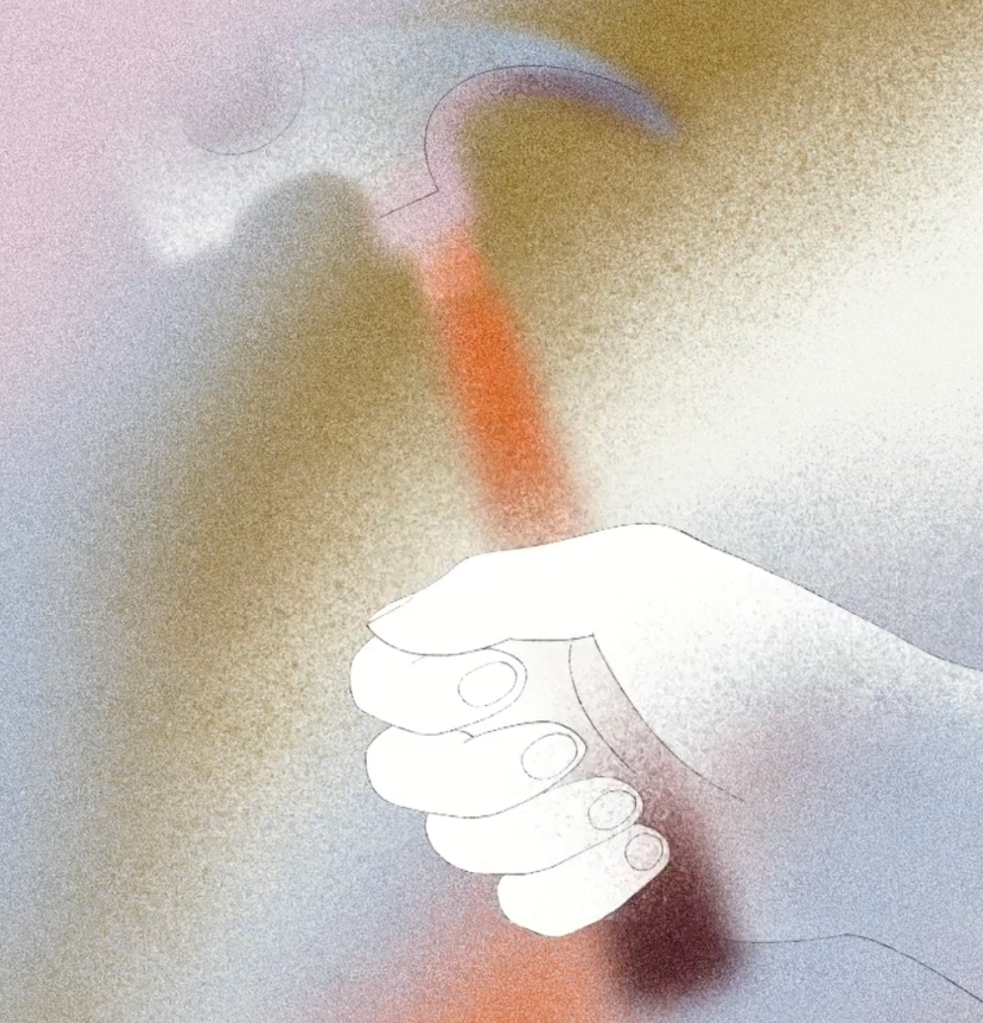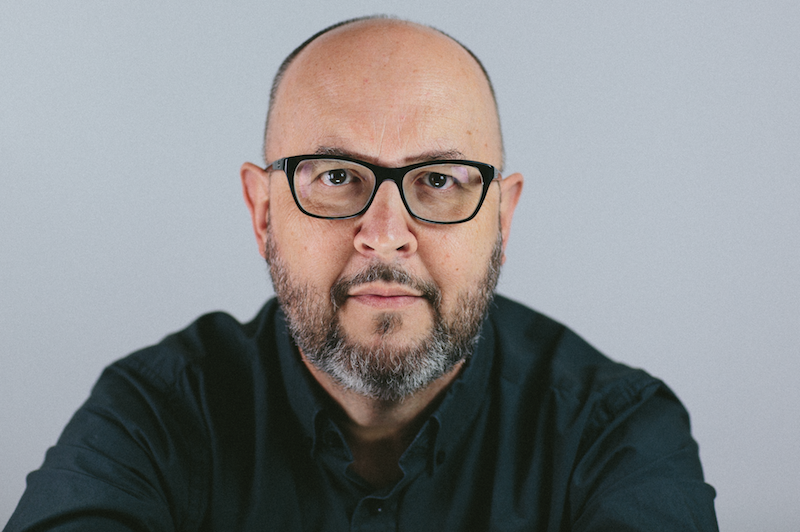“The Weekend Wanderer” is a weekly curated selection of news, stories, resources, and media on the intersection of faith and culture for you to explore through your weekend. Wander through these links however you like and in any order you like. Disclaimer: I do not necessarily agree with all the views expressed within these articles but have found them thought-provoking.

“Working With Your Hands Is Good for Your Brain: Activities like writing, gardening and knitting can improve your cognition and mood. Tapping, typing and scrolling? Less so.” – Markham Heid in The New York Times: “The human hand is a marvel of nature. No other creature on Earth, not even our closest primate relatives, has hands structured quite like ours, capable of such precise grasping and manipulation. But we’re doing less intricate hands-on work than we used to. A lot of modern life involves simple movements, such as tapping screens and pushing buttons, and some experts believe our shift away from more complex hand activities could have consequences for how we think and feel. ‘When you look at the brain’s real estate — how it’s divided up, and where its resources are invested — a huge portion of it is devoted to movement, and especially to voluntary movement of the hands,’ said Kelly Lambert, a professor of behavioral neuroscience at the University of Richmond in Virginia. Dr. Lambert, who studies effort-based rewards, said that she is interested in ‘the connection between the effort we put into something and the reward we get from it’ and that she believes working with our hands might be uniquely gratifying.”

“Finding an Uncontainable God Within Finite Poetic Spaces” – Joey Jekel interviews poet Scott Cairns in relation to his newest collection of poetry in Christianity Today: “Fans of the Harry Potter series might recall the magical tents from Harry Potter and the Goblet of Fire. In the film version, when the Weasleys take Harry and others to the Quidditch World Cup, the audience sees rows and rows of small tents, seemingly designed to sleep only one or two people. Harry is confused as he witnesses the others walk into a single tent, which can hold much more than its external size betrays. Once Harry follows suit, he stands in awe at a spacious interior containing several bunkrooms, a dining room, and a large living room. This scene gives a helpful image for the ideas and realities Scott Cairns takes up in his new collection of poems, Lacunae. Cairns is an Eastern Orthodox poet whose work, besides ten poetry collections, includes essays, a spiritual memoir, and the text of two oratorios. Many of the poems in Lacunae concern the mystery of divine things, infinite in scope, somehow fitting within finite spaces and times. Just as Harry Potter was surprised to find all that was contained within an ostensibly small tent, one is shocked to find the fullness of God contained in Mary, and even more so, contained within every Christian by the indwelling of the Holy Spirit.”

“A God You Can Dance Before: David can sing and dance before God, because God has first sung and danced before him” – Adam Morton at Mockingbird: “Every Sunday the man dances. Middle-aged, thin, and balding, he takes his place on the edge of the chancel with a handful of church youth and, in an ecstasy of long white limbs, performs actions to a series of praise choruses, no matter how silly he might appear. Ostensibly this is a demonstration for those desiring similar kinesthetic dimensions of worship, but one look at his face tells another story. He is not playing to the congregation. Rich is the nearest thing to a walking ‘Dance like no one is watching’ t-shirt, and he knows the truth of that slogan — many are watching, but he only cares about one. It is before the Lord that he dances. I typically do not dance — not in church and rarely otherwise. I don’t do actions to songs, and you won’t catch me putting my hands in the air. Since the church I attend these days is not the sort to occupy those hands with a weighty hymnal, I keep them planted firmly in my pockets. My mind, meanwhile, is governed by an inescapable self-consciousness, somehow only worsened by the gyrating example before me. Doesn’t he care how he looks? What sense of security allows him to dance like that?”

“Terrence Malick’s ‘The Way of the Wind’ Eyeing 2025 Premiere — Shot in 2019” – Jordan Ruimy at World of Reel: “The film is currently three hours long. Malick first hoped to make the film in the ‘90s with Disney and a large budget, but quickly departed the project when the studio wouldn’t give him final cut; he then embarked on ‘The Thin Red Line.’ As I had recently reported, Terrence Malick’s ‘The Way of the Wind’ is still not ready. Long story short, separate sources were telling me that Malick was practically done editing the film. There was an end in sight. However, you could almost certainly scratch off a Cannes 2024 appearance. He’s continuing work on this one until, at least, August — that’s when the final stages of mixing occur. The next best case scenario could have been a Venice premiere. However, we can also scratch off Venice. Géza Röhrig, who plays Jesus in Malick’s biblical epic, has confirmed that the film will premiere at Cannes 2025. Malick has been editing the film, which was shot in 2019, for close to five years now. He also, supposedly, shot close to 3000 hours of footage. ‘“’The Way of the Wind’ conveys passages “in the life of Christ” through the representation of evangelical parables. Jesus Christ’s descent into the world of the dead, also known as his ‘descent into hades,’ rumored to be one of the parables included in the film. The cast includes the likes of Matthias Schoenaerts (as Saint Peter), Röhrig (as Jesus), Ben Kingsley, Joseph Fiennes, and Mark Rylance (as Satan).”

“Everyone Knows” – Alan Jacobs at The Homebound Symphony: “Reading this Jessica Grose piece — so similar to ten thousand other reports made in recent yers — on the miseries induced or exacerbated by digital technologies in the classroom, I think: Everyone knows all this. Everyone knows that living on screens is making children miserable in a dozen different ways, contributing to ever-increasing rates of mental illness and inhibiting or disabling children’s mental faculties. Everyone knows that engaging creatively with the material world is better for children — is better for all of us. Everyone knows that Meta and TikTok are predatory and parasitical, and that they impoverish the lives of the people addicted to them. Everyone knows that social media breed bad actors: each platform does this in its own way, but they all do it, and the more often people engage on such platforms the more messed-up and unhappy they become.”

“Across the Country, Amish Populations Are on the Rise” – Sam Myers in The Daily Yonder: “The Amish, a religious group living almost exclusively in rural America due to their agrarian lifestyle, have astounded both their rural neighbors and researchers with recent population growth. According to the Young Center for Anabaptist and Pietist Studies at Elizabethtown College, the estimated population of North American Amish in 2023 was 384,290 (6,100 in Canada), a 116% increase from 2000. Statistics show that the population nearly doubles every 20 years. Unlike some other Christian denominations, Amish communities don’t focus on converting outsiders (there are only a few dozen converts on record), so this population growth comes almost exclusively from existing communities.”
Music: Khruangbin, “May Ninth,” from A La Sala








 This past week marked the passing of two well-known Christian leaders:
This past week marked the passing of two well-known Christian leaders: 














